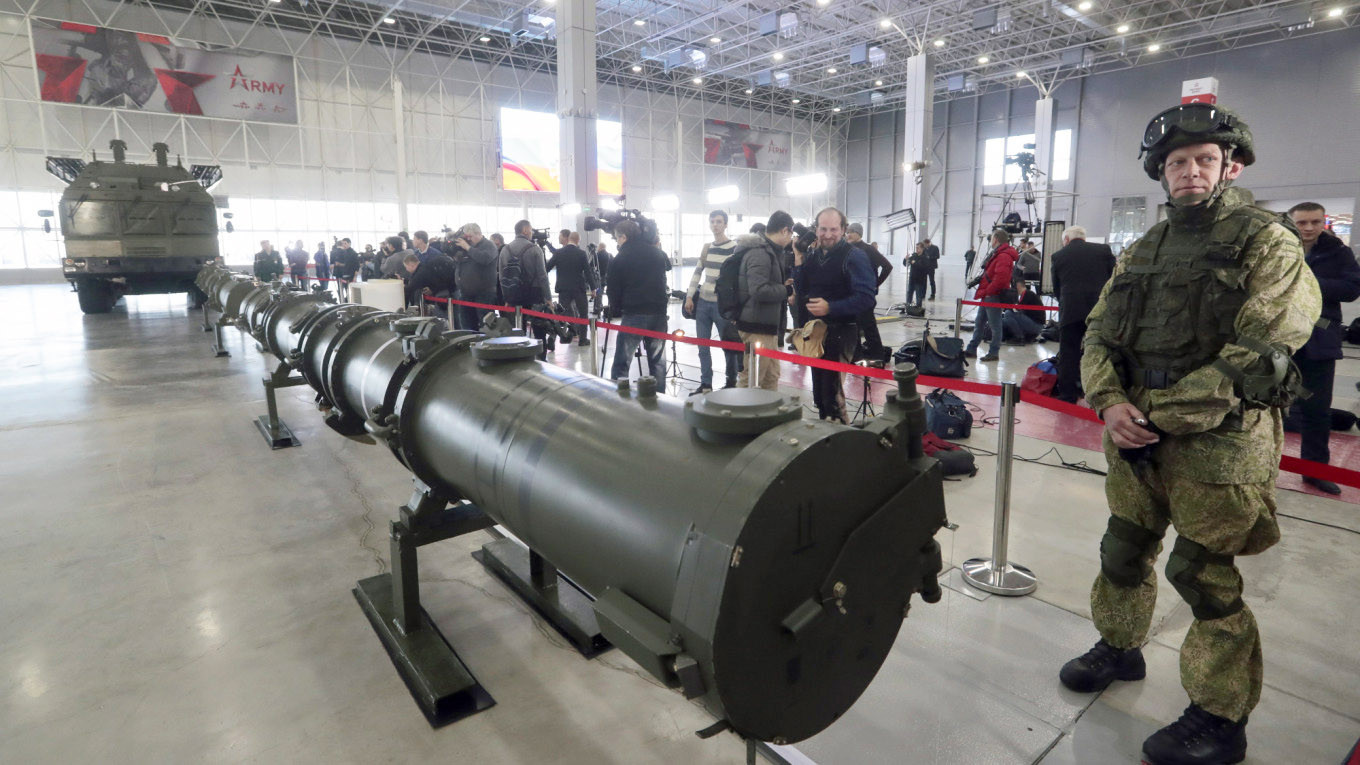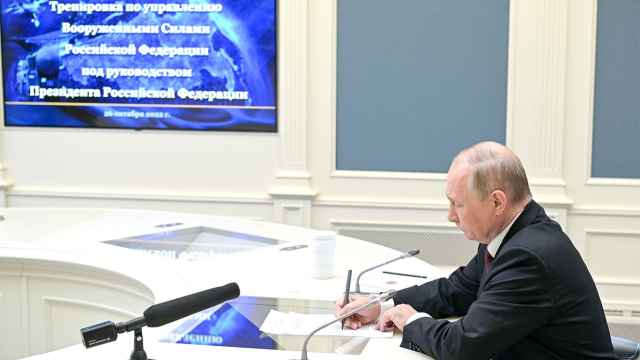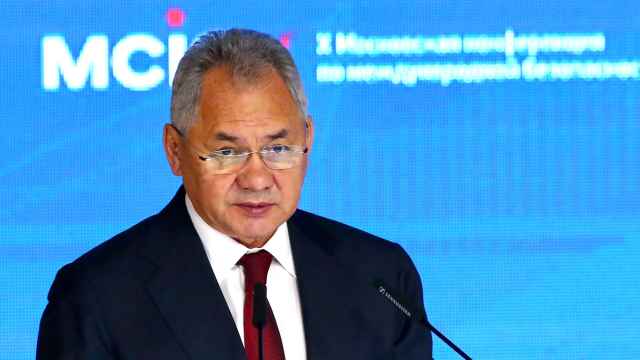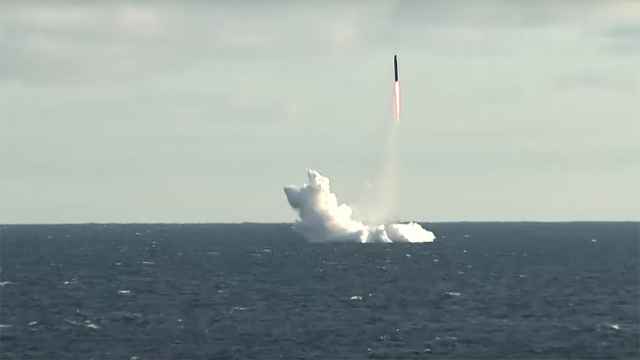President Vladimir Putin signed a nuclear deterrence policy document Tuesday which reaffirms Russia's allowance of first nuclear strikes in retaliation to non-nuclear attacks.
Its publication, which has until now has been classified, comes less than a year before the last major U.S.-Russian nuclear arms control treaty is set to expire without extension. The world’s two biggest nuclear powers exited another landmark strategic arms accord last year after accusing each other of violating it.
“Aggression against Russia with the use of conventional weapons when the very existence of the state is threatened” is one of four circumstances that the new document clears Russia to use nuclear weapons.
It reiterates Russia’s stance for nuclear weapons use against conventional weapons under the 2010 military doctrine.
The 2020 policy document also reserves Russia’s nuclear weapons use against nuclear weapons or “reliable information” of ballistic missile launches against Russia or its allies, as well as “action” against critical Russian state or military facilities.
Russia reserves the right to revise the fundamentals of its nuclear deterrence policy “depending on internal and external factors impacting defense provision,” the document states.
Russia has expressed deeper misgivings over U.S. nuclear policy after Washington pulled out of the Intermediate-Range Nuclear Forces Treaty (INF) in August 2019, citing violations by Russia that Moscow denies.
The 2010 New START accord, which limits the number of deployable long-range nuclear warheads, is now the only remaining arms control treaty between the U.S. and Russia.
U.S. President Donald Trump has announced he wants to strike a nuclear pact with Russia. In response, the Kremlin’s spokesman urged the Russian and U.S. foreign policy chiefs to step up negotiations before the New START Treaty expires in February 2021.
A Message from The Moscow Times:
Dear readers,
We are facing unprecedented challenges. Russia's Prosecutor General's Office has designated The Moscow Times as an "undesirable" organization, criminalizing our work and putting our staff at risk of prosecution. This follows our earlier unjust labeling as a "foreign agent."
These actions are direct attempts to silence independent journalism in Russia. The authorities claim our work "discredits the decisions of the Russian leadership." We see things differently: we strive to provide accurate, unbiased reporting on Russia.
We, the journalists of The Moscow Times, refuse to be silenced. But to continue our work, we need your help.
Your support, no matter how small, makes a world of difference. If you can, please support us monthly starting from just $2. It's quick to set up, and every contribution makes a significant impact.
By supporting The Moscow Times, you're defending open, independent journalism in the face of repression. Thank you for standing with us.
Remind me later.






